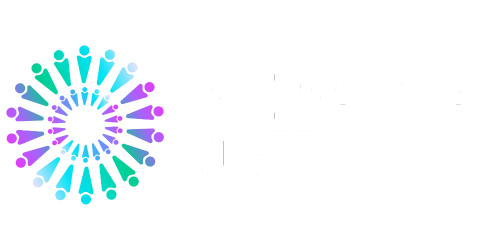Why it’s difficult to find junior talent post-Covid-19

Mike Dennis, head of production at experience agency Wonder, says recruiters need to look outside of the events industry when it comes to recruiting new talent.
Our business, like many others, has entered into a post-pandemic recruitment drive, but unlike other industries, as a B2B experience agency, we are noticing that the hardest roles to fill are junior-level positions.
In 2021, B2B in-person events were few and far between, which has left the experience industry looking for skills that were unable to surface, let alone flourish.
The B2B background
In the B2B events world, conferences, exhibitions and large trade shows took longer to return than consumer-facing activations, festivals and cultural events. B2B is a distinct specialism and significantly different from working on a music event or a brand activation in Waterloo station.
Fewer events meant fewer roles available, with on-site roles often filled by senior people who both needed the work and could deliver with minimal supervision.
Traditionally, every production person starts as a ‘doer’ - you’re expected to turn up on-site, unaware of exactly what you're going to be doing, but certain you’re going to be doing something. The sector looks for people who are capable of leading a crew, overseeing the loading and unloading of trucks, and supervising often complex builds.
Transferable skills
The pandemic wasn’t easy, but businesses should be looking for people who are open about what they did or didn’t do during this time. There's no judgement of people who waited for normality to return, but we want to know if people tried their hand at something different.
I interviewed someone who spent six months behind a bar, another person who delivered the post, and a third candidate who worked on a building site.
All of these examples exemplify physically demanding roles that require you to be on your feet, talking to people, and moving around - these are transferable skills. But even more important is seeing that these individuals didn't shy away from talking about what they had been doing.
When you work in events, you're going to be on-site for 16 hours a day, and after that 16 hours we have to do it all again the next day. So we need applicants with a can-do, positive attitude - evident to me in the fact that they have thrown themselves at something challenging, physically demanding or just plain different.
WFH vs WFO
I'm going to be controversial and say that for junior roles, I’m asking people to commit to being in the office as much as they are able. It’s interesting to note that this is really matching what these candidates want.
There are times when we work from home, but being in the office comes with its own set of benefits. Fundamentally, we have senior talent from whom I want to see juniors absorb knowledge. I want them to hear important conversations, to be around the right people and to be able to ask questions and show their personality.
As a junior at Wonder, I worked 52 events in my first year, so when I’m planning for anyone's career progression I have to take into consideration what I feel benefitted me the most. For new staff, we consider our project pipeline, and decide what each individual employee stands to learn from each individual event.
Additionally, the benefits of being on-site are clear. Less experienced team members can shadow more senior staff, be flexibly available in a less rigorously predefined capacity, or be put on tasks where they can learn as they go. Even though this can be intimidating, it’s vital for people’s development to let them independently problem-solve, whilst making sure they’re supported and not overwhelmed.
The value of company culture
We are without doubt operating in a time when talented freelancers have the ability to pick and choose their roles, whilst maintaining a healthy day-rate.
Fundamentally, it’s critical for us to attract the right specialists for each project, and this is without doubt aided by the fact that we are working on bespoke, high-end creative builds, from a production perspective, they view this as something challenging and fun to work on.
Nonetheless, in spite of the shifted freelance focus, Wonder has a good track record for converting these individuals into full-time staff. And this all comes down to our company culture. People feel comfortable and happy with us: they enjoy the variety of jobs, and the size and complexity of projects tend to prove equally appetising.
They understand that Wonder treats them as people, true to our 'audience first approach' to client challenges. This helps create an innate bond as we acknowledge not only their place within Wonder, but their individual career goals and trajectory.
What's next?
As the pandemic hangover extends into 2023, the challenges for those recruiting new talent will continue to evolve. The key, for me, lies in recognising the symbiotic relationship between employer, employee and the work itself, and understanding what each of these has to learn and gain from the other.
